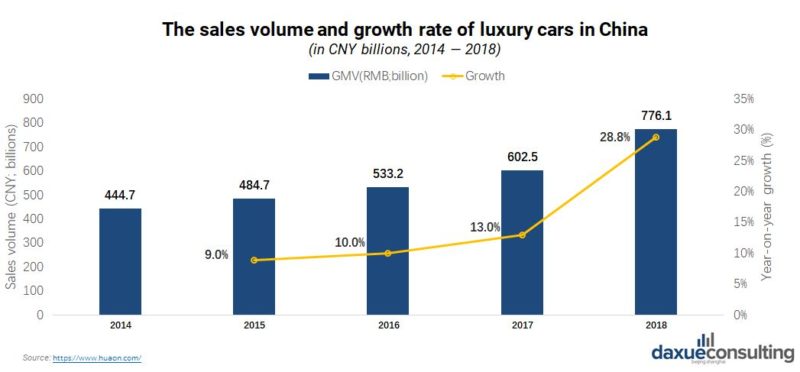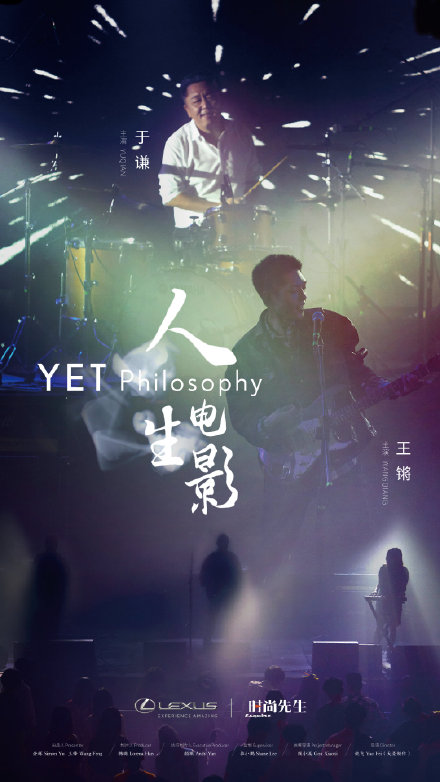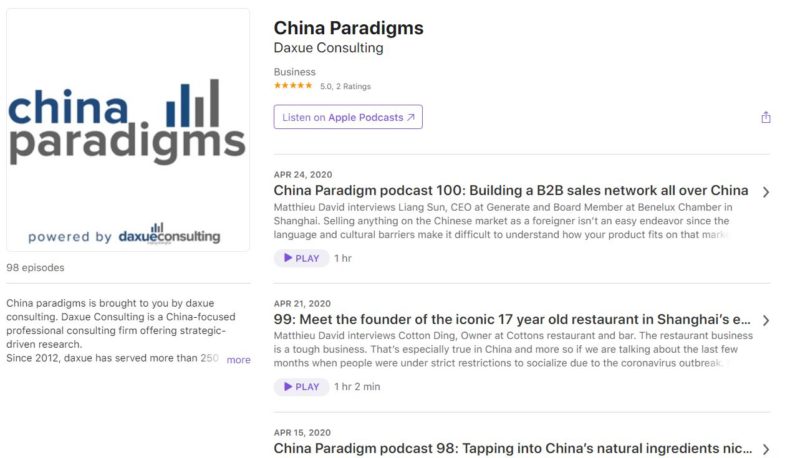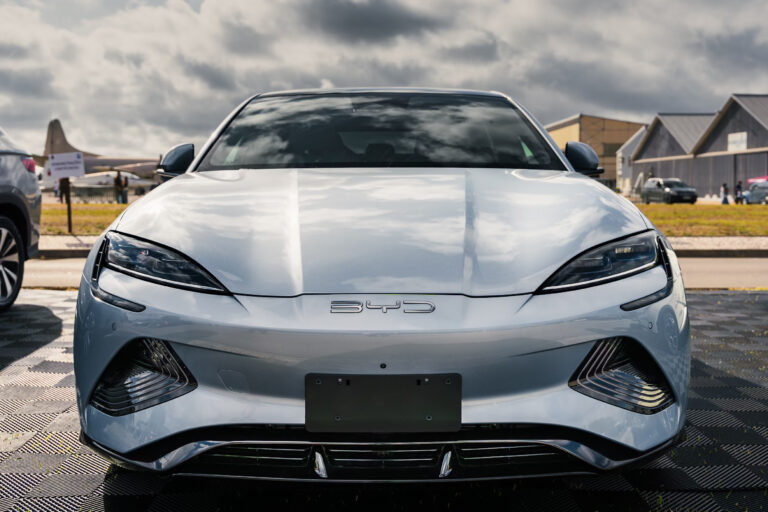In 2019, Lexus in China sold over 200 thousand vehicles, with 25% growth year-on-year. 2019 was the third year that Lexus has a sales growth of more than 20% and was the year in which Lexus sole its millionth vehicle in China. Lexus China’s recent success is reflective of China’s luxury car market, which also had double digit growth until 2019.
About Lexus
Lexus is the luxury vehicle division of Japanese automaker Toyota Motor Corporation. First introduced in 1989 in the United States, Lexus is now sold globally and has become Japan’s largest-selling make of premium cars. The Lexus marque is marketed in over 70 countries and territories worldwide, and ranks among the ten largest Japanese global brands in market value. Lexus is headquartered in Nagoya, Japan. Operational centers are located in Brussels, Belgium, and Torrance, California, United States. Since officially entering the Chinese market in 2004, Lexis has been in China for over 15 years and the demand for Lexus China is strong during the period.
Since its inception, Lexus has advertised its products to luxury consumers using specific marketing strategies with a consistent motif of luxury. Industry observers have attributed Lexus’ early marketing successes to higher levels of perceived quality and lower prices than competitors, which have enabled the marque to attract customers upgrading from mass-market cars. Lexus’ marketing efforts have also extended to sporting and charity event sponsorships.
Lexus in the Chinese car market
The Chinese car market is shrinking while the revenue of luxury auto brands continues increasing
The Chinese car market the world’s largest car market, saw consecutive drop after decades of growth in 2018 and 2019 because of a cooling economic and trade war pressures. According to data released by the China Passenger Car Association, the number of passenger vehicles sold in China dropped to 20.7 million in 2019, decreasing for 7.4% from 2018. That exceeded the 3% drop in 2018. However, the sales and revenue of luxury car market in China showed a stable upward trend in recent years. In the period from Jan. to Nov 2019, the market share of luxury car brands in China reached around 10.8%, increased steadily from 6.1% in 2015. The sales of luxury cars amounted to 200.24 thousand in the September of 2019, with a 18.6% year-by-year rise.

[Data source: huaon.com, Luxury car market in China growth]
Lexus China saw strong sales in recent years
Despite the downward pressure in the Chinese car market, Lexus reported 148,976 sales in China from January to November 2018, up 24% year over year. In 2019, Lexus China maintained double digit sales growth of 25% and delivered 200,521 vehicles in China. 2019 was the third year that Lexus has a sales growth of more than 20% and was the year in which Lexus sole its millionth vehicle in China. Lexus was the fifth-largest luxury car brand in China in 2019, following BMW, Mercedes-Benz, Audi and Cadillac. Lexus accounted for approximately 5% of the Chinese luxury car market and wished to occupy 10% of the market by the end of 2020.
The market strategy of Lexus in China
Create a strong brand image
Breaking away from Toyota’s brand system, Lexus has committed to establishing its unique brand values and propositions in order to be recognized as a luxury lifestyle brand. The core brand value of Lexus, the luxury vehicle division of Toyota corporation, is comfort, luxury and pursuit of perfection, which contradicts that of Toyota. So, Lexus creates its own brand culture as well as the matching marketing strategy.
For brand identity, while Mercedes Benz always tries to convey that it is a matter of pride and prestige to own a Mercedes and BMW emphasizes “the pure driving pleasure”, Lexus lays emphasis on its “3S” spirit (SEIKAKU +SHINSETSU=SHINRAI) when marketing. It is wise for Lexus to emphasize “customers first” since it satisfies customers’ increasing demand for high-quality service in the background of consumption upgrades. The core marketing philosophy helps Lexus build a positive brand image among Chinese customers.
Word-of-mouth marketing
In the new era of consumption, brands must try their best to create word of mouth among their fan groups. Lexus attaches great importance to the user experience, and perform word-of-mouth marketing based on user experience. For example, Lexus China invited well-known designers to create five-star 4S stores as well as generally praised exhibition hall, and it launched a Mysterious Visitor Plan in order to increase customer satisfaction. Also, to ensure the customer loyalty, Lexus focus on building fans communities. Since 2006, Lexus in China has implemented a maintenance plan, launching a series of campaigns such as golf tournaments, concerts, tree planting, and environmental protection days. Through the building of communities, Lexus is able to established emotional resonance with its customers and thus deepen the connection between the brand and the customers in China.
New marketing

[Source: Lexus China weibo account, “Lexus’s film – ‘Life Movie’”]
Lexus China has launched its new marketing strategy and held a series of diversified and creative campaigns including crossover marketing (IP marketing) and microfilm marketing. Lexus officially launched the Lexus UX into China’s market on January 23 and held the conference for this brand-new model teamed up eight other brands: ThinkPad, Kindle, New Balance, Godiva, Monster, Visa, 3M and Coca Cola. Jointly designed poster as well as the brand windows of all brands displayed at the press conference aimed to convey the common concept “Attention to details”. In this case, Lexus’s brand image of obsessing over details is more well-known among Chinese consumers. Also, Lexus successfully attract the young and sophisticated urban consumer with this crossover marketing campaign since all these brands are targeting the same consumer group.
Another example is the launch of Lexus’s film to promote RX line of luxury SUVs in October, 2019. The short film, one of Lexus “Life Movie” series films, explores intergenerational conflict and the power of music with the thesis of musical nostalgia. Yu Qian, a popular Chinese crosstalk performer, and Huang Bo, a famous Chinese actor, played two main characters. The nostalgia-driven film successfully appealed to Lexus’s target consumers, relatively older, affluent people by evoking a feeling of sentimentality. The film got more than 3 million views on Weibo, and received numerous positive feedbacks, which showed the success of the new market strategy of Lexus in China.
Under the spread of coronavirus: Impact on auto manufacturing in China caused a crisis for Lexus
Toyota opposed producing its premium Lexus cars in China for years because of concerns over quality and profitability. However, this may lead to great troubles of Lexus under the spread of coronavirus.
On the one hand, as the first country to break out of the epidemic, China has made achievements in the fight with the virus, and reopened Wuhan after a 76-day lockdown, which means all the country is able to resume work. At the same time, Japan declared a Coronavirus Crisis on April 7 and is still struggling to contain the outbreak. Since all the Lexus cars in the Chinese market are built in Japan, the production of Lexus might be affected due to the possible shutdowns. On the other hand, the competitors of Lexus in China, like Mercedes and BMW, reopened their Chinese factories and resumed production in February. In this case, the gap between Lexus and its competitors may widen due to the shortage of production capacity.
From a demand-side perspective, the negative impact of COVID-19 on the Chinese economy may last for a long time and there will be a fall in demand for luxury cars. In addition, the price-fixing on Lexus cars last year harmed Chinese customers’ rights and caused complaints among consumers, causing a decline in the reputation of Lexus cars. So, a decreased demand for Lexus cars in the Chinese market this year is expected.
Overall, under the spread of coronavirus globally, Lexus in China is facing crisis. However, if Lexus can come up with good solutions to ensure its production and continue taking advantage of marketing, it may succeed in the luxury car market in China again.
Listen to 100 China entrepreneur stories on China Paradigms, the China business podcast
Listen to China Paradigm on Apple Podcast






